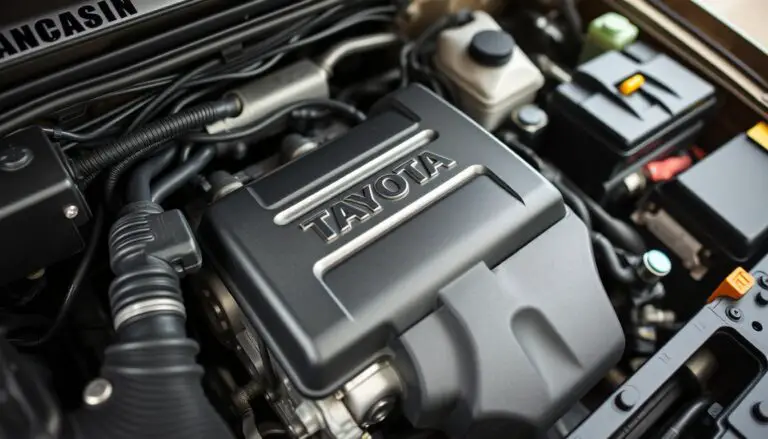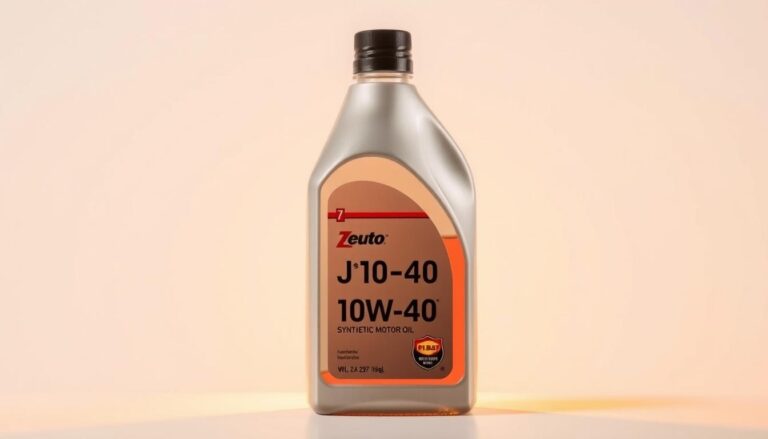Adherence to the manufacturer’s guidelines regarding the fuel type for your Jeep Grand Cherokee is paramount for preserving its operational efficacy and longevity. The gasoline for Jeep Grand Cherokee is meticulously specified by the manufacturer, necessitating strict adherence to these recommendations.
The Jeep Grand Cherokee, renowned for its versatility, demands the appropriate fuel type to achieve optimal performance. Selecting the correct gasoline is imperative, ensuring that your vehicle operates with seamless efficiency, maintains its fuel economy, and prevents potential engine damage.
Key Takeaways
- The correct fuel type is essential for the Jeep Grand Cherokee’s performance.
- Using the wrong gasoline can lead to decreased efficiency and potential engine damage.
- The manufacturer’s recommended fuel type should always be followed.
- Proper fuel choice ensures longevity and optimal operation of the vehicle.
- Consulting the owner’s manual is the best way to determine the correct gasoline for your Jeep Grand Cherokee.
Current Fuel Requirements for 2023-2024 Jeep Grand Cherokee Models
The 2023 and 2024 Jeep Grand Cherokee models necessitate a comprehension of their fuel requirements for peak performance. These vehicles are equipped with diverse engine configurations, each with its unique fuel specifications.
Standard Engine Fuel Specifications
The prevalent engine in many Jeep Grand Cherokee variants is the 3.6L V6 Pentastar, which demands regular unleaded gasoline with an 87 octane rating. It is imperative to refer to the owner’s manual or the fuel doorjamb label for precise information.
Latest Factory Recommendations
Recent factory guidelines stipulate that high-performance models, such as the SRT and Trackhawk, necessitate premium fuel with a higher octane rating of 91-93. Adherence to the recommended fuel type is critical for preserving the vehicle’s performance and warranty.
“Using the correct fuel type is essential for the optimal performance and longevity of your Jeep Grand Cherokee.” – Jeep Official Manual
Regional Fuel Considerations in the United States
Fuel quality and type variations across regions can impact the Jeep Grand Cherokee’s performance. For example, areas with high sulfur content in gasoline may necessitate additional fuel system cleaners. It is also pertinent to note that some regions offer ethanol-blended gasoline, which is generally compatible with most Jeep Grand Cherokee models.

Grasping these regional fuel considerations enables owners to make informed decisions regarding their fuel choices, thus ensuring the longevity and health of their vehicles.
Regular Unleaded Gasoline: The Standard Choice
Regular unleaded gasoline stands as the preferred fuel for the Jeep Grand Cherokee, striking a harmonious balance between performance and economy. This is notably true for models equipped with the V6 Pentastar engine.
V6 Pentastar Engine Fuel Requirements
The V6 Pentastar engine, celebrated for its versatility and performance, is engineered to operate optimally on regular unleaded gasoline. It necessitates gasoline with an octane rating of 87 or higher.
87 Octane Recommendation for Base Models
For base models of the Jeep Grand Cherokee, the use of 87 octane gasoline is advised. These models are tailored for regular fuel, achieving the optimal balance between fuel efficiency and engine performance.

Performance Impact of Regular Fuel
The utilization of regular unleaded gasoline in the Jeep Grand Cherokee imparts several performance implications:
- Optimal fuel efficiency for base models
- Potential for slightly reduced power output compared to premium fuel
- Generally lower fuel costs
In summary, regular unleaded gasoline is an appropriate selection for the majority of Jeep Grand Cherokee drivers, offering a commendable equilibrium between cost and performance.
Premium Fuel Requirements for Performance Models
Jeep Grand Cherokee performance models, such as the SRT and Trackhawk, necessitate specific premium fuel requirements. These high-performance variants are engineered to deliver exceptional power and speed, necessitating the utilization of high-octane fuel to achieve optimal performance.
91-93 Octane Needs for SRT and Trackhawk Models
The SRT and Trackhawk models necessitate 91-93 octane fuel for efficient operation. Utilizing lower octane fuel can result in diminished performance and potentially cause engine damage over time. The high-compression engines in these models are designed to fully exploit premium fuel, providing a more potent driving experience.
Fuel Recommendations for 5.7L V8 HEMI Engine
The 5.7L V8 HEMI engine, found in certain Jeep Grand Cherokee models, recommends the use of regular unleaded gasoline. For drivers who frequently tow or drive in hilly terrain, premium fuel can aid in maintaining engine performance and cleanliness.
Engine Protection and Performance Benefits
Utilizing the recommended premium fuel in performance models offers several benefits, including enhanced engine protection and improved performance. Premium fuel can help reduce the risk of engine knock or pinging, which can lead to long-term damage. It also contributes to a cleaner engine, as high-octane fuel typically contains more detergents that help keep the engine clean.
In summary, for Jeep Grand Cherokee performance models, adhering to the recommended premium fuel requirements is crucial for maintaining optimal performance and ensuring the longevity of the engine.
What Type of Gas Does a Jeep Grand Cherokee Take: Fuel Choices Explained
Comprehending the appropriate fuel type for your Jeep Grand Cherokee is paramount for its optimal performance and longevity. The selection of fuel significantly influences your vehicle’s efficiency, power output, and overall health. This section delves into the fuel options available for various Jeep Grand Cherokee models.
Model-Specific Fuel Requirements Chart
Diverse Jeep Grand Cherokee models necessitate specific fuel requirements. The table below delineates the recommended fuel types for different models:
| Model | Engine | Recommended Fuel |
|---|---|---|
| 2023 Jeep Grand Cherokee | V6 Pentastar | Regular Unleaded (87 Octane) |
| 2023 Jeep Grand Cherokee SRT | 5.7L V8 HEMI | Premium Unleaded (91 Octane) |
| 2023 Jeep Grand Cherokee Trackhawk | 6.2L Supercharged V8 | Premium Unleaded (93 Octane) |
Decoding Fuel Door and Manual Information
The fuel door and owner’s manual serve as indispensable resources for identifying the correct fuel type for your Jeep Grand Cherokee. The fuel door typically displays a label indicating the recommended fuel type. The owner’s manual further elucidates fuel requirements and maintenance recommendations.
Consequences of Using Incorrect Fuel Types
Utilizing the incorrect fuel type can precipitate a decline in performance, diminished fuel efficiency, and potential engine damage over time. For example, employing regular unleaded fuel in a model that necessitates premium fuel can induce engine knocking or pinging, potentially necessitating costly repairs if not promptly addressed.
By comprehending and adhering to the recommended fuel type for your Jeep Grand Cherokee, you can ensure its smooth operation, maintaining performance and efficiency.
Diesel Options in the Grand Cherokee Lineup
Diesel aficionados will find solace in the Grand Cherokee’s 3.0L EcoDiesel engine, a paragon of performance and efficiency. Engineered to deliver unparalleled torque and towing capacity, it stands as the quintessential choice for those tasked with hauling substantial loads or embarking on extensive journeys.
3.0L EcoDiesel Specifications and Availability
The 3.0L EcoDiesel V6 engine is accessible in select trim levels of the Grand Cherokee. It showcases an impressive 33 MPG on the highway, rendering it an exemplary choice for prolonged road excursions. The engine’s cutting-edge technology encompasses a high-pressure common rail fuel system and a variable geometry turbocharger, synergistically offering both potency and parsimony.
Ultra-Low Sulfur Diesel Requirements
The longevity and performance of the EcoDiesel engine hinge on the utilization of ultra-low sulfur diesel (ULSD) fuel. Any deviation from ULSD can precipitate substantial engine deterioration. Diesel engine connoisseurs aver that “ULSD fuel is indispensable for the efficacious operation of the advanced emission control systems in contemporary diesel engines.”
Cold Weather Considerations for Diesel Models
Diesel engines exhibit heightened vulnerability to cold weather conditions. Jeep advocates for the employment of winterized diesel fuel or additives during the colder seasons. Further, allowing the engine to acclimate to ambient temperatures before operation can augment performance and diminish wear on the engine.
By comprehending the distinctive attributes and prerequisites of the Grand Cherokee’s diesel engine, proprietors can partake in the advantages of augmented fuel efficiency and augmented towing capacity.
The New Grand Cherokee 4xe: Plug-in Hybrid Fuel Requirements
Jeep has introduced the Grand Cherokee 4xe, a plug-in hybrid that merges the vigor of a conventional engine with the frugality of an electric motor. This innovation extends Jeep’s lineup, catering to those seeking a balance between power and efficiency.
Gasoline Specifications for Hybrid Operation
The Grand Cherokee 4xe necessitates the use of regular unleaded gasoline, with an octane rating of 87. Its hybrid system is engineered to enhance fuel efficiency without compromising performance.
Electric Range and Charging Information
The Grand Cherokee 4xe boasts an electric-only range of up to 25 miles, contingent upon driving conditions. Charging the vehicle is uncomplicated, with options for a Level 1 (120V) or Level 2 (240V) charger. A full charge via a Level 2 charger is achieved in approximately 2 hours.
- Level 1 (120V): 8-12 hours for a full charge
- Level 2 (240V): 2 hours for a full charge
Optimizing Fuel Economy in Hybrid Mode
To enhance fuel efficiency in the Grand Cherokee 4xe, drivers can adhere to a few straightforward guidelines:
- Employ electric mode for brief journeys and urban excursions.
- Ensure proper tire pressure to diminish drag.
- Utilize regenerative braking to replenish the battery.
By grasping the fuel requirements and capabilities of the Grand Cherokee 4xe, drivers can partake in the advantages of a plug-in hybrid vehicle. These include augmented fuel economy and diminished emissions.
Fuel Economy and Tank Capacity Across the Lineup
The Jeep Grand Cherokee’s engine diversity demands a nuanced examination of fuel economy and tank capacity. This is essential for both prospective and current owners. The array of engine choices necessitates a comprehension of their fuel efficiency implications.
MPG Comparisons Between Engine Options
The Jeep Grand Cherokee presents a spectrum of engine choices, including the V6 Pentastar, 5.7L V8 HEMI, 3.0L EcoDiesel, and the plug-in hybrid 4xe model. Each engine boasts distinct fuel economy characteristics. The V6 Pentastar engine strikes a balance between power and efficiency, achieving an estimated up to 23 MPG combined for certain configurations. In contrast, the 3.0L EcoDiesel engine enhances torque and fuel efficiency, with some variants reaching up to 29 MPG on the highway.
Comparing MPG across these engines reveals significant disparities, influenced by driving conditions, model year, and specific trim levels. For instance, the 4xe plug-in hybrid model offers an electric-only range, significantly curtailing fuel consumption for short distances.
Real-World Fuel Consumption Reports
Real-world fuel consumption diverges from manufacturer estimates due to diverse factors, including driving habits, terrain, and weather. Owners’ reports indicate varied fuel economy figures, with some surpassing EPA estimates, while others fall short due to aggressive driving or heavy payloads.
Maximizing Range in Different Driving Conditions
To enhance your Jeep Grand Cherokee’s range, consider your driving conditions and habits. Maintaining optimal tire pressure, removing unnecessary weight, and employing cruise control on highways can elevate fuel efficiency. For the 4xe hybrid model, leveraging electric mode for short trips and city driving can substantially reduce fuel consumption.
Grasping these factors and adjusting your driving habits can optimize your Jeep Grand Cherokee’s fuel economy. This ensures maximum efficiency, regardless of the engine choice.
Conclusion
The Jeep Grand Cherokee presents a spectrum of engine configurations, each necessitating specific fuel requirements. Accurate identification of the appropriate fuel type is paramount for achieving peak performance, maximizing fuel efficiency, and prolonging engine durability.
In this discourse, we have delved into the diverse fuel options available for the Jeep Grand Cherokee, encompassing both gasoline and diesel engines. The 2023-2024 models predominantly necessitate the use of regular unleaded gasoline, albeit certain performance-oriented variants may demand premium fuel. For precise details on the fuel specifications pertinent to your Jeep Grand Cherokee model, consult the owner’s manual or the label affixed to the fuel door.
For those with a keen interest in the Jeep Grand Cherokee’s historical evolution and technical specifications, a visit to the Wikipedia page on the Jeep Grand is recommended. This resource offers an exhaustive examination of the vehicle’s genesis, engine configurations, and other critical attributes.
By selecting the correct fuel type and adhering to the recommended maintenance regimen, owners can partake in a secure and gratifying ownership journey with their Jeep Grand Cherokee.
FAQ
What type of fuel does a Jeep Grand Cherokee require?
The fuel requirements for a Jeep Grand Cherokee depend on the model. Most models necessitate regular unleaded gasoline. Certain performance-oriented models, on the other hand, necessitate premium fuel. Diesel models demand ultra-low sulfur diesel.
Can I use premium fuel in my Jeep Grand Cherokee if it’s not required?
Utilizing premium fuel in a Jeep Grand Cherokee that does not necessitate it is innocuous. It, though, does not confer any substantial advantages. It is generally advised against due to its elevated cost.
What happens if I use the wrong type of fuel in my Jeep Grand Cherokee?
Employing the incorrect fuel type can precipitate a decline in performance and fuel efficiency. It may also induce damage to the engine or fuel system. Thus, it is imperative to adhere to the fuel type specified in the owner’s manual.
How do I know what type of fuel my Jeep Grand Cherokee needs?
The recommended fuel type for your Jeep Grand Cherokee can be ascertained from the owner’s manual. It is also indicated on the fuel doorjamb. Consultation with a dealership or a trusted mechanic can provide further clarification.
Can I use diesel fuel in a gasoline-powered Jeep Grand Cherokee?
No, utilizing diesel fuel in a gasoline-powered Jeep Grand Cherokee is contraindicated. It poses a significant risk of damaging the engine and fuel system. It is not advisable under any circumstances.
What are the benefits of using the correct fuel type in my Jeep Grand Cherokee?
Adherence to the correct fuel type ensures optimal performance and fuel efficiency. It also prolongs the engine and fuel system’s longevity. This approach mitigates the risk of damage or incurring costly repairs.
Are there any regional considerations for fuel types in the United States?
Yes, fuel quality and availability exhibit regional variability. Some areas may adhere to different fuel standards or requirements. It is crucial to remain cognizant of these regional differences when operating your Jeep Grand Cherokee.
Can I use ethanol-blend gasoline in my Jeep Grand Cherokee?
Most Jeep Grand Cherokee models are compatible with ethanol-blend gasoline. It is, though, imperative to consult the owner’s manual for specific guidance. Certain models may impose restrictions or stipulate particular requirements.


